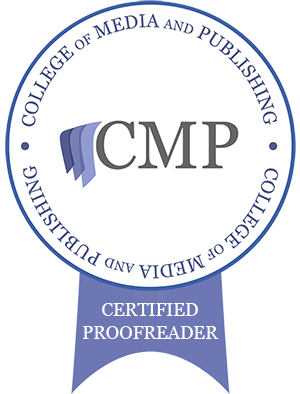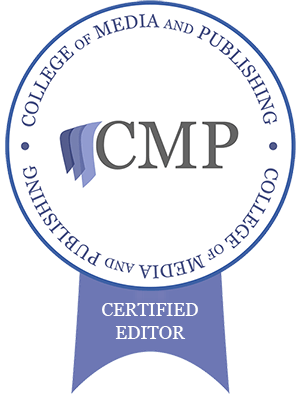
Sensitivity readers and controversy. Like any other famous person who has become a household name, controversy is almost an inevitability. Being so well known means that every single word and action that is made public, is available for scrutiny and criticism. Roald Dahl is no different to many other authors. He has been accused of anti-semitism and racism during his lifetime. Other well known authors have faced the same, and some of them deserve it more than others perhaps.
Some of these things are easily debatable, some less so. The issue I’m going to discuss today is something that happened earlier this year, back in February. The publisher of Roald Dahl’s works, Puffin Books, hired sensitivity readers to review all of his books and edit them. This has been met with both support and criticism, and certainly from what we know, Roald Dahl himself would not have been happy about the majority of these changes.
What is a Sensitivity Reader?
Sensitivity readers are hired to review works of literature for anything that could cause offence or be considered stereotypes or bias and recommend edits to remove these. See here for the Wikipedia definition. When I first heard of this, I was pretty upset. I am by no means saying that we shouldn’t be careful of bias and stereotyping in writing, and anything that is blatantly racist or discriminatory should be edited. However, upon seeing the revisions made, I found myself quite angry about some of them.
Don’t get me wrong, there’s a few things that are problematic, especially when seen through a modern lens. They’ve always been problematic, but now it is easier to call out these issues and address them. That said, there’s a line, and crossing that line can lead you into ‘performative activism’ territory. Making changes to look like you care and you’re doing something, but you’re not really changing things. Like trying too hard to show you’re not racist or ableist or homophobic to the point of singling out the people in these marginalised communities.
When we are combating prejudice and bias, it is vitally important to make sure we are not silencing the people that we are supposed to be supporting. As a white person, I cannot understand what it is like to be black, and I cannot truly understand racism from the perspective of someone who has experienced that. Often these performative activist types are doing just that, claiming they know better and diminishing the voices of the people who are facing these discriminations and prejudices.
The Revisions
The Oompa Loompas have been one of the bigger controversies. They are the workers in Willy Wonka’s Chocolate Factory. They were originally written as black African Pygmies and obviously there are serious overtones of colonialism and slavery. Dahl did rewrite them as white skinned in 1972. This, I have no problem with, and I would hope nobody else does. That’s a change that needed to be made.
African Tortoises
However, in Esio Trot, a story that centres around a tortoise, the author’s note at the beginning talks about how garden tortoises were very common pets when Dahl’s children were young. It mentions how they were imported into England by the thousand until a few years ago when this was made illegal. It states that most of them were from North Africa, and this was apparently changed to ‘all over the world’, citing racism.
The problem for me? That’s not racism. It’s a fact. A lot of them came from the Mediterranean, including Egypt (which is in North Africa). Species like the Leopard Tortoise, the Greek Tortoise (also known as the common tortoise and the spur-thighed tortoise) which are found all across North Africa, the Mediterranean and the Middle East.
Gender
Another one I found very odd was in the Fantastic Mr Fox, where the character of Small Fox was changed from male to female. Small Fox being Mr Fox’s child. This just seems baffling to me, because it makes no difference to the narrative, and just sounds like performative anti-sexism to me. They also removed the adjective ‘black’ from the description of a couple of tractors. I could understand if it was used in reference to a person, but tractors? Why is that problematic? Did a John Deere complain about racially profiling farming machinery?
Final Thoughts
I agree that there needs to be sensitivity in literature and authors and publishers do need to be cautious. However, I definitely believe a lot of these revisions are performative, unhelpful and pointless. Changing to gender neutral language and removing the word ‘queer’, which has obviously changed definition since these books were written, absolutely. But randomly switching the gender of a character for no reason? Avoiding saying anything came from Africa in case it is seen as racist?
It’s a step too far in my opinion. Especially given that Roald Dahl is no longer around to have any involvement in these decisions. They waited over 30 years to do this, as he died in 1990. We need to be aware of situations where people may be offended, but we also need to listen to the people who actually belong to the groups who are being discriminated against. Let the LGBTQIA+ community speak for themselves, let BIPOC people speak for themselves. Those of us who are not these people should be elevating their voices, not talking over them.
Language is always evolving. Society is always changing too, not always for the better. Things are better but there is still a long way to go, and we have moved backwards. Instead of focusing on literature and changing nursery rhymes, perhaps we should be focusing more on dealing with the inherent issues. For an interesting take on tokenism, I’d recommend watching South Park Season 25 Episode 2: “The Big Fix.”
Conclusion
Thanks for reading. I know this is a controversial topic and I don’t claim to have all the answers or know everything. Feel free to join the conversation and tell me what you think. Subscribe for more updates and find me on my social channels.




Leave a Reply